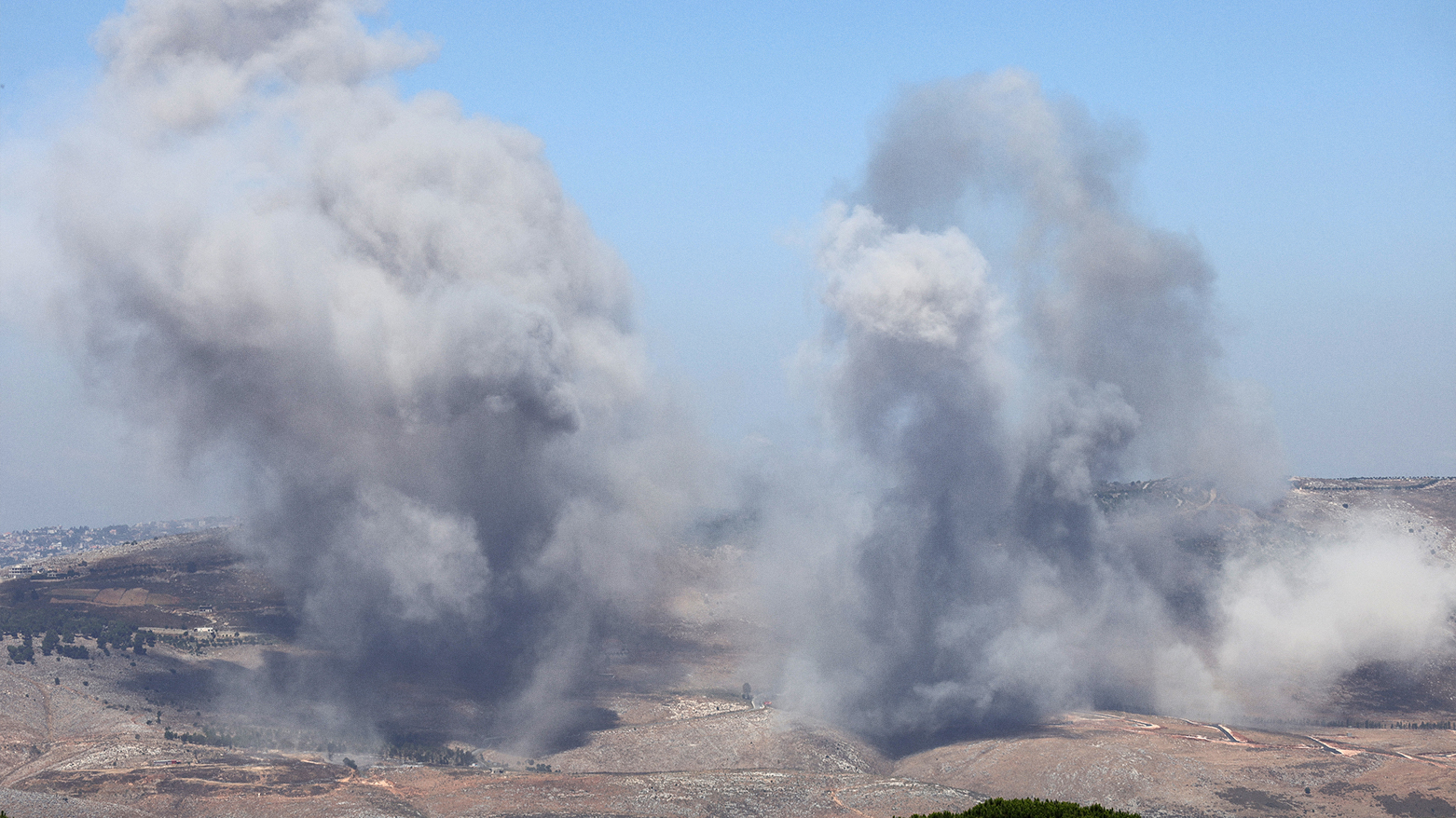Israeli Airstrikes Hit Nine Hezbollah Targets Across Lebanon
Israeli jets struck nine Hezbollah sites across Lebanon, including Baalbek and Kafr Melki, targeting weapons production and launch facilities. The strikes follow Hezbollah chief Naim Qassem’s vow to resist Israeli aggression and reject disarmament despite ceasefire terms.

By Kamaran Aziz
ERBIL (Kurdistan 24) — Israeli warplanes carried out a series of airstrikes on Monday, targeting nine Hezbollah positions across Lebanon, according to Lebanon’s state news agency.
The strikes reportedly hit several sites, including the Flaoui area and western parts of Baalbek province in eastern Lebanon, Kafr Melki in the north, and other undisclosed locations. The Israeli military claimed these were Hezbollah military infrastructures used for the development of combat capabilities.
Israeli military spokesperson Avichay Adraee stated on X, “IDF launched airstrikes a short while ago in the Beqaa region and southern Lebanon, targeting several military sites and infrastructure for the storage and production of strategic combat means belonging to the terrorist Hezbollah, in addition to a site for launching rocket projectiles. The presence of these combat means and the activities of the terrorist Hezbollah in the region constitute a blatant violation of the understandings between Israel and Lebanon. IDF will continue to operate to eliminate any threat to the State of Israel.”
#عاجل 🔸شن جيش الدفاع قبل قليل غارات جوية في منطقة البقاع وفي جنوب لبنان مستهدفًا عدد من المواقع العسكرية والبنى التحتية لتخزين وإنتاج وسائل قتالية استراتيجية لحزب الله الارهابي بالإضافة إلى موقع لإطلاق قذائف صاروخية.
— افيخاي ادرعي (@AvichayAdraee) July 6, 2025
🔸وجود تلك الوسائل القتالية وأنشطة حزب الله الارهابي في…
The airstrikes follow a public address by Hezbollah Secretary-General Naim Qassem on Sunday, in which he reaffirmed the group’s commitment to resisting what he described as Israeli aggression. Speaking during an Ashura commemoration event, Qassem emphasized both the political and military dimensions of Hezbollah's stance.
“We in Lebanon confront the Israeli enemy in defense of our country and our resistance. This defense will continue, even if the entire world—from beginning to end—were to unite against us, for we believe that liberation is a duty, no matter how long it takes or how many sacrifices it requires,” Qassem stated.
Hezbollah has continued to reject any normalization of relations with Israel and has criticized what it sees as repeated Israeli violations of ceasefire agreements. Qassem also commended Iran’s Supreme Leader Ayatollah Ali Khamenei for his support of resistance movements in the region, saying, “Imam Khamenei… was keen on ensuring that the flame of resistance remained alive—progressive, innovative, and capable of altering strategic equations.”
Qassem reiterated Hezbollah’s refusal to disarm, declaring, “We refuse to live in Lebanon as if it were a large prison. We insist on living in a country that is free, dignified, sovereign, and resistant.”
His speech came ahead of a planned visit by US envoy Tom Barrack to Beirut. According to a Lebanese official who spoke anonymously with AFP, Lebanese authorities are preparing a response to Barrack’s call for Hezbollah to be disarmed by the end of the year.
Meanwhile, Lebanese officials maintain that steps have been taken to dismantle Hezbollah’s military infrastructure near the Israeli border in southern Lebanon. However, Israel continues to carry out military operations, citing Hezbollah's persistent presence and accusing Beirut of failing to enforce the ceasefire.
The ceasefire agreement, reportedly announced on Oct. 27, 2024, required Hezbollah to withdraw its forces north of the Litani River, roughly 30 kilometers from the Israeli border. Israel was likewise obliged to withdraw its forces from Lebanese territory but has retained positions in five strategic locations.
Despite the ceasefire, hostilities persist, with Israel continuing its airstrikes in southern Lebanon and near Beirut. Hezbollah’s future, and by extension Lebanon’s stability, remains at the forefront of regional diplomatic efforts and international attention.
